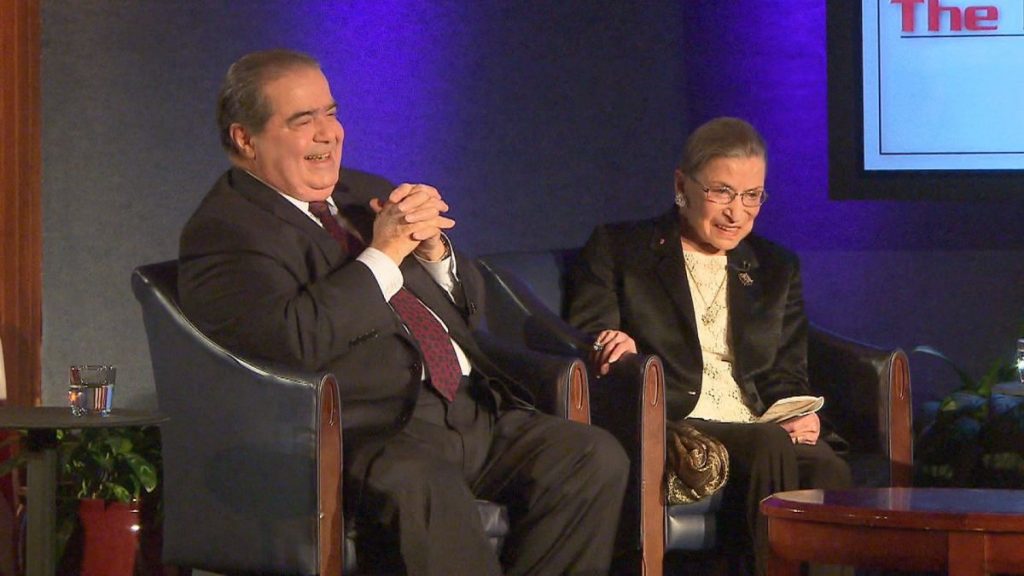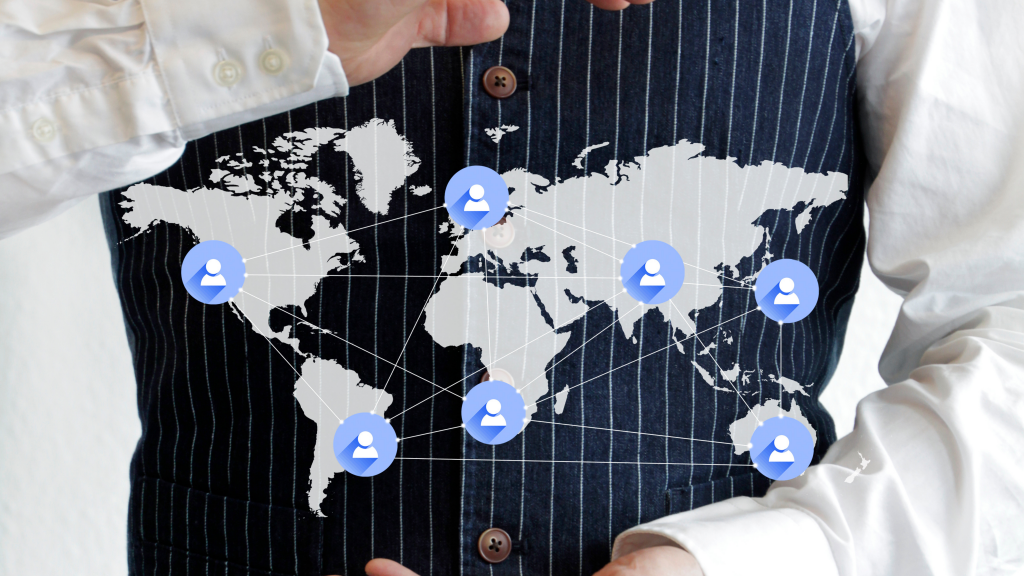
by Steve Hitz
Steve Hitz is a co-founder of Launching Leaders Worldwide. Launching Leaders, a partner of Religious Freedom & Business Foundation, has engaged participants in 36 countries on six continents through a faith-based personal leadership curriculum which empowers participants everywhere.
The word “religion” in itself, brings with it a set of paradigms strangely positioned in our world. In its name, entire countries were established, wars fought, and persecutions beset to those who have tried to live into their own faith— regardless of the consequences.
Many of today’s youth declare, they are “spiritual but not religious,” or “spiritual but not affiliated.” Why do they say that? It is a popular phrase to self-identify a life stance regarding spirituality that takes issue with organized religion as the most effective way to further spiritual growth. And yet, while seeking their own spiritual path that may be different from the path of their parents, the ability to achieve this quest still requires religious liberty.
Of all freedoms desired and sought after, the right to guide one’s own spiritual beliefs without oppression from others in the same society is paramount. And yet, this freedom is infringed upon in todays “cancel culture” where those who disagree decide to eliminate each other from their lives. Righteous movements to put attention to social injustices are smothered by hatred and vitriol toward anyone who has a differing mind-set.
Contrast this with the late Supreme Court Justice Ruth Bader Ginsburg (Jewish) with her colleague Antonin Scalia (Catholic) and their relationship. Even though they differed on many points of judicial considerations and even faith, nevertheless they became dear and trusted friends; they built a sweet and lasting relationship that respected each other’s views without diminishing their friendship. That is a lesson for all of us. The religious liberty they both practiced made each other more complete. Indeed, it brought peace on so many fronts.
Justice Ruth Bader Ginsburg Eulogy at Justice Scalia Memorial Service (C-SPAN)
Whether your spirituality is derived from a mountain top, a band, or steeped in tradition, religious liberty provides the freedom to live in your own path of fulfillment. I believe our society can take a few tips on how to live out religious liberty. It involves personal action and also a unified world view on the matter.
Religious liberty is the freedom to believe and exercise or act upon religious conscience without unnecessary interference by government. It is the freedom to practice one’s faith, or to practice no faith at all. While government needs to step in to resolve conflict between religious liberty and law, it must look out for any who would be detrimentally affected by their decisions. This can be tricky and is where the voice of the people largely guides the consequences of religious freedom.
In the United States, the first amendment to the constitution provides guidance on how this liberty is protected and assured. Note, the phrase “separation of church and state” is not in the first amendment, but is considered shorthand to say when church and state are separated, neither tries to interfere with the essential mission and work of the other. Someone’s religious liberty is denied, and everyone’s religious liberty is threatened, when government favors one faith over another. The fight for religious liberty is an effort to prevent government from doing what even God will not do; coerce faith.
So why is this so very important? Because without religious liberty and freedom, peace and choice are replaced by coercion and control. In all ages, this leads to war and destruction of the human family. Religious freedom is the seedbed for human rights and protects what makes us human. Religious liberty is not just an American value; it is much more than that. Some scholars argue that religious freedom is not a distinct right and conflate this right with other issues of the day. This conflation undermines the innate idea that religious freedom and liberty is a distinct right of every human being, which idea was codified as the Universal Declaration of Human Rights (UDHR) in 1948. This document has been referenced by thousands seeking to advance this cause and right. Even so, we should remember that religious freedom was a human right eons before it was codified into any document.
In an effort to protect and preserve religious liberty, please consider the following ideas:
Practice Civil Discourse
Though we may have cultural differences, we ought not to have cultural wars. Everyone may have their own way of expressing, for example, the Golden Rule (treat others as you wish to be treated). Every faith has their own version that essentially inculcates peace, harmony, and human dignity. Islam states, “Not one of you truly believes until you wish for others what you wish for yourself” (The prophet Muhammad, Hadith), while Taoism states “Regard your own gain as your neighbors gain, and your neighbors loss as your own loss”( Tai Shank Kan Ying Phen). I can cite similar definitions from over two dozen different faith traditions. The point is, while there are many faith traditions and beliefs, the end result of respecting one another’s right to believe or not brings us all to a better understanding of how we achieve the same desired results though on different paths.
Respect Human Dignity
The beauty of religious freedom is that it provides a proper window to view others through. Instead of judging another’s beliefs, it promotes the idea that all are created equal and should be afforded without distinction or discrimination, all that their spiritual and religious hopes desire. The current world leader of The Church of Jesus Christ of Latter-day Saints said recently, “discrimination because of race is morally wrong and contrary to God’s plan of happiness for His children,” (Russell M. Nelson). Again, the human right of religious freedom affords everyone the right, without prejudice, to believe or not believe. Either way, it leads us to respect human dignity.
Use your voice with loving clarity, not anarchy and hatred
Reverend Theresa A. Dear of the National Association for the Advancement of Colored People (NAACP) stated, “The remnants and vestiges of the current America will be taught in history classes, preserved in shadow box frames and ensconced in museums. Future generations will likely mourn our current America of 2017, 2018 and 2019, which has been fraught with polarization, whistle blowing, name calling, tweets, brutality and hatred. We are tired of the vitriol, caustic leadership and unapologetic indecencies and offenses. Our souls cannot relive any version of this again. We crave a better America. We have the collective capacity to build a better America. Each of us must commit that the better America of tomorrow begins with our individual actions — today.” She also said “racism thrives on hatred, oppression, collusion, passivity, indifference and silence.”
Dallin H. Oaks, former Supreme Court Justice of the State of Utah, said “While we do have the right to peaceful protests in the United States, by law, protesters have no right to destroy, deface, or steal property or to undermine the government’s legitimate police powers. The constitution and laws contain no invitation to revolution or anarchy. All of us—police, protesters, supporters, and spectators—should understand the limits of our rights and the importance of our duties to stay within the boundaries of existing law. Abraham Lincoln was right when he said, “There is no grievance that is a fit object of redress by mob law.” Redress of grievances by mobs is redress by illegal means.”
Our distinct right of religious liberty and freedom is better assured through civil discourse under the laws of the land; it is destroyed through anarchy, hatred and the “cancel culture.” Therefore, let your disputes be in the spirit of the framework of human dignity and civil discourse. Let your voice be that of loving clarity.
Pray for healing and understanding
Religious liberty affords us the opportunity to hope for brighter days in turbulent times; to go beyond conflict toward a time of calm and peace. Implementing these few suggestions will build a framework to promote, defend, and celebrate religious freedom. We are all individuals on a planet, trying to live out a peaceful life of meaning. Religious freedom can allow this life of peace of purpose to exist, advance, and prosper. It is worth praying for healing of hearts and for understanding as we strive to advance the wonderful causes such of our day, such as social justice.
Within the framework of civil discourse, respecting human dignity, and using our voice with loving clarity, we can achieve peace. Religious liberty is the seedbed for achieving the peace of which I speak.



















